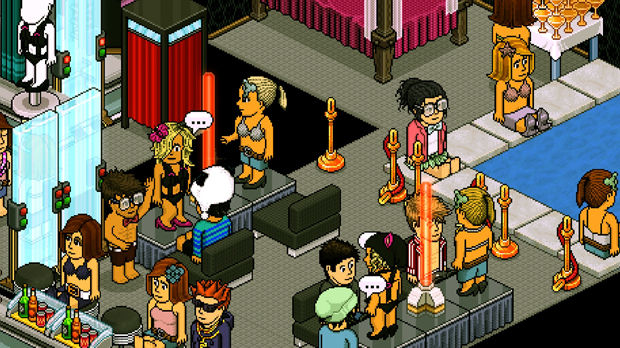In the wake of the disturbing news that teen site Habbo Hotel had hosted illicit and inappropriate content, the response from other sites aimed at teens and younger children has been patchy at best.
Yesterday UK broadcaster Channel 4 published allegations that the site was playing host to pornographic sexual chat, despite being aimed at children as young as 13 years old.
We asked similar sites what they were doing in the wake of the Channel 4 story, some of them startups.
Moshi Monsters, a site with over 70 million users and aimed at young children outlined what safeguards they had in place to protect minors.
They said their Chief Safety and Community Officer, Rebecca Newton has been managing online communities for kids online since the 1990s and is “one of the leading experts on the subject in the world”.
A spokesperson said: “We take the responsibility of looking after kids online very seriously and use a combination of the most sophisticated behaviour monitoring software commercially available and expert human moderators to keep the site safe. We apply real-world common sense, and intervene if necessary to suspend and sometimes ban users from our site.”
Parents are encouraged to play the game with their children and for parents to teach their kids online safety. Moshi Monsters says it works with CEOP, the FBI, the Metropolitan Police, the National Centre for Missing and Exploited Children in the US and “all relevant authorities.” In addition they say players can flag inappropriate content on the site to moderators.
But while Moshi Monsters responded quickly with a statement, other sites aimed at young children seem to be either unaware of the story or not responding to media.
Toonix, owned by Cartoon Network Europe (owned by Turner Broadcasting) has over 350,000 registered users. The Toonix site is aimed at 7-11 year olds and calls on kids to “Be whoever you want to be” by creating and customising their own avatars.
A Toonix spokesperson said “We cannot comment but have forwarded your email to CNN/Turner Broadcasting. I am sure they will be in touch soon.”
Stardoll, which targets a demographic of girls and boys between the ages of 9 and 17, did not answer our request for a statement. Stardoll has over $10 million in venture funding from Index Ventures and Sequoia Capital among others.
We also asked Disney-owned Club Penguin to outline their safeguards but no response was forthcoming at publication.
However, the Habbo story has clearly spooked other online businesses. ISP BT today rushed out an email to its customers about “Keeping your children safe online,” with advise for parents suggesting about safety software for PCs (not Macs).
A Channel 4 News producer spent two months playing Habbo Hotel posing as a young girl. She was subjected to chats and interactions of an explicit sexual nature describing “violent, pornographic, overtly sexual acts” almost within minutes of logging in. She was asked ‘do you have a webcam?’, ‘can we chat on (instant messenger service) MSN, on Skype?’. She was asked to strip naked and asked what she would I do on a webcam.
Habbo is aimed at ages 13 and older, has 268 million registrations, though Compete put it at 20,000 while Quantcast put it at 9 million unique users monthly. Sulake’s CEO, Paul LaFontaine, has issued a statement on Sulake’s site yesterday emphasizing the company’s commitment to child safety online.
In an unprecedented move top European VC firm Balderton has ditched a 13 percent stake in the Finnish social networking and virtual world company Sulake, creators of Habbo – a massive blow. Balderton had been an investor in Sulake for eight long years, putting, along with other investors, $35 million into the site.
3i, which owns 15 percent of the company, says it “remains committed to Sulake.”
